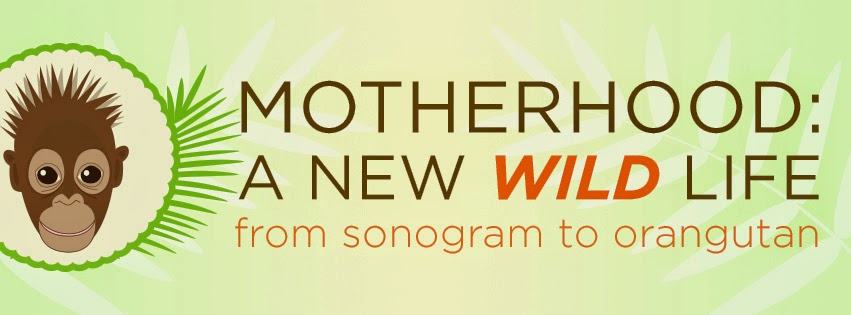It’s never too early to start thinking about your child’s education when you’re a parent … and Ibu is no exception!
Ibu brings Khaleesi to her training sessions and faces the infant toward the keepers. Training is designed to stimulate the animal’s physical and mental well-being and to help animals’ and animals care staff form trust-based bonds.
Ibu has a strong bond with her keepers, evidenced by her trusting them to cut Khaleesi’s umbilical cord when she was born on April 23, 2015. Now, she’s bringing Khaleesi with her to the morning and noon training sessions so Khaleesi can learn from mommy (and the trainers)!
Orangutan mommies are the caretakers and teachers of their young – babies learn everything from their moms, including how to eat, drink, potty-train, be independent, climb the right trees, travel through the trees, gather and use their own tools, how to be cautious of predator animals, and more.
Ibu positions Khaleesi on the orangutan climbing mesh to face her trainers. The trainers go through each verbal and hand cue- mommy first, then baby. Khaleesi cannot perform any of the training exercises like Ibu does just yet – because she is still an infant – but she’s observing, focusing and learning!
Khaleesi (and mommy Ibu allow the trainers to palpate baby’s limbs, tummy, mouth and gums. Training occurs twice daily so Khaleesi (and mommy Ibu too, since she’s very protective of her baby) are comfortable with routine checkups by the Zoo staff.
Though Khaleesi doesn’t have teeth yet, her gums are checked daily. Zoo staff is monitoring the baby’s dental development in order to contribute to worldwide conservation research. The research is helping to improve age estimations of orangutans observed in the wild and orphaned orangutans in rehabilitation facilities in South East Asia, whose dates of birth are usually unknown.
While Zoo staff needs to know when her teeth will start to break through for research, this also helps the Zoo make sure Khaleesi has healthy oral development.

































